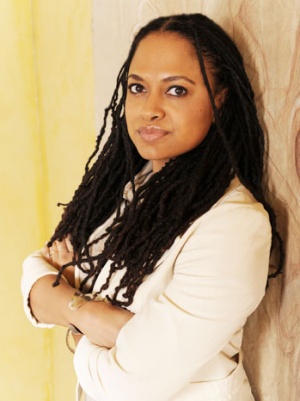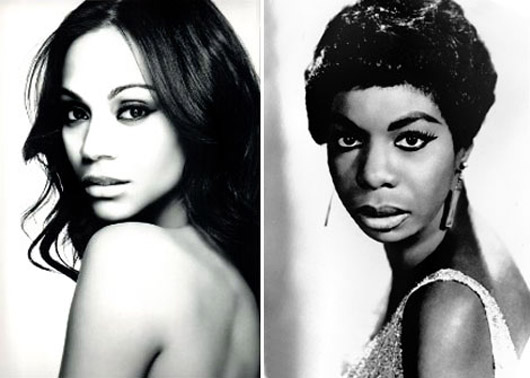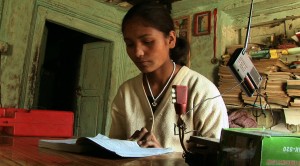I don't doubt for one second that criticism of Hollywood plays an important role in keeping Hollywood accountable. But black women owe it to each other to more frequently use our voices to highlight our resistance, our power, ways in which artists of color have been resourceful, increasing support and…
-
-
The London Feminist Film Festival Seeks Submissions from African Women Filmmakers
The very first London Feminist Film Festival, held between Nov 29 - Dec 2, 2012 at the Hackney Picturehouse, is seeking submissions from African feminists. The organizers are actively working to solicit submissions from filmmakers with diverse backgrounds, including the LGBTI Diaspora. I may actually submit something, given how visually…
-
Zoe Saldana to Star in Nina Simone Biopic: How the Dark vs. Light Skin Debate Misses the Point about Black Women and the Media
In case you missed it, Hollywood is gearing up to release a biopic of Nina Simone, an African-American singer, pianist, and civil rights activists whose music was highlight influential in the fight for equal rights for blacks int he US. Zoe Saldana, a light-skinned Dominican actress has been cast to…
-
Afrofeminism - Blog - Film - Gender and LGBT Issues - LGBT Africa - Media - Race, Culture, Ethnicity - Social Commentary - Special Series
Racism and LGBT Rights: Where are the African Films in the South African LGBT Film Festival?
South Africa's 19th Out in Africa LGBT Film Festival opens this weekend and there is certainly no shortage of films about women, quite an achievement to note given how often the LGBT community is depicted as male. Yet, within the context of Africa, the LGBT community is also frequently perceived…
-
International Women’s Day Screening of Africa’s “Waiting for Superman” — “To Educate a Girl”
Framed by the United Nations global initiative to provide equal access to education for girls by 2015, the documentary film, To Educate a Girl, takes a ground-up and visually stunning view of that effort through the eyes of girls in Nepal and Uganda, two countries emerging from conflict and struggling…
Online rulet oyunları gerçek zamanlı oynanır ve online slot casino bu deneyimi canlı yayınlarla destekler.
Türkiye’deki bahisçilerin güvenini kazanan bettilt giriş hizmet kalitesiyle fark yaratıyor.
İnternet üzerinden eğlence bahsegel giriş arayanlar için deneyimi vazgeçilmezdir.
Kullanıcıların hesaplarına hızlı ve sorunsuz bettilt ulaşabilmesi için adresi her zaman güncel tutuluyor.




